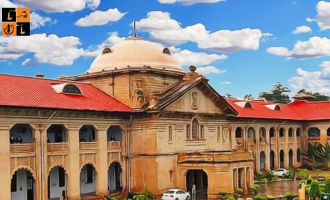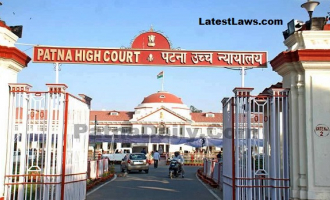About USLLS
Established in 2001, the University School of Law and Legal Studies envisages the advancement of institutional expertise in the area of legal research and education by augmenting academic and professional excellence, developing critical and relentless engagement with legal theory and practice, synergizing law, legal research, legal education and action to further the quest for justice.
University School of Law and Legal Studies aspires to open new vistas in the arena of law, legal studies, and theoretical and clinical legal education through an incessant endeavour towards developing academic potential, critical analytical ability, advocacy, counselling and mediation skills to fully equip the students with learning which is intellectually stimulating, socially vital and professionally enriching.
About the Competition
The theme of the competition revolves around the field of Alternate Dispute Resolution. The competition gives creative freedom to participants to express their opinions and academic research skills, keeping the suggested themes in mind.
Preference will be given to essays which add to the academic discourse over the theme and objectives. Submissions merely summarise or analyse the case will not be preferred unless found to be exceptional. The acceptance of the submitted articles would be subject to the evaluation criteria and process determined by the ADR Cell editorial board. The shortlisted articles will be subject to a comprehensive review. The winners will be decided by the Editorial Board in consultation with the sponsors; the same shall be final and not open to any challenge.
The essays will be compiled and print-published in a book as well as on the website of USLLS ADR Blog, with all rights reserved by the university. The published copies would be circulated to the top law colleges, libraries, law firms and arbitration institutions, with the collaborative effort of the University School of Law and Legal Studies and our sponsors.
Theme
Interplay of Arbitration Law with various Sectoral Regulations Exploring Jurisdictional Dynamics:
- India’s Journey in International Investment Law and Arbitration.
- Arbitrability of Intellectual Property Disputes.
- The interplay of conflicting principles between Arbitration and Insolvency proceedings.
- Legislative gap between the Arbitration Act and Foreign Exchange Management Act.
- The legitimacy of Investor-State Dispute Settlement (ISDS) vis-àvis Arbitration.
- Integrating Environmental, Social, and Governance (ESG) Factors in Assessing Damages in International Arbitration and Promoting Sustainable Social Justice.
Evolving Contemporary dynamics and transformative Advancements in the Indian Arbitration Law
- Navigating India’s Arbitration Law Reforms for a Progressive Legal Landscape.
- The Advent of contemporary mechanisms of using Information Technology in Arbitration.
- The status and enforceability of Emergency Arbitrator Proceedings.
- Bridging Traditional Practices with Modern Global Dynamics in Indian Arbitration Law.
- The Role of Med-Arb: Integrating Mediation and Arbitration for Effective Dispute Resolution in India.
- Intersection of Arbitration and Public Policy in India.
- ADR in the Digital Age: Exploring the Potential of Online Dispute Resolution (ODR) in Indian Context.
- Unstamped Arbitration Agreements and their enforceability as per the Indian Arbitration Law.
India’s Position in the International Arbitration Law Regime
- India as an emerging hub for International Arbitration.
- Achieving symphony between Global Arbitration regime and Indian Domestic Arbitration laws.
- Jurisdiction of Indian courts in International Commercial Arbitration.
- Harmonizing International Arbitration Law through Ensuring Consistency in Awards amidst Parallel Proceedings.
- Global Recognition and Expertise: India’s Arbitrators and Legal Professionals in International Arbitration.
- Global Perception and Compliance: Evaluating India’s Adherence to International Arbitration Norms.
- Challenges in Legal Harmony: Conflict of Laws in the Context of Foreign Arbitration Seats.
- Unravelling the Challenges in Enforcing Foreign Arbitral Awards for Global Justice.
- Cross-Border Cultural Challenges and Linguistic inconsistencies in the realm of International Arbitration.
Changes with the introduction of The Mediation Act, 2023.
- Deconstructing Legal Foundations: A Deep Dive into Mediation Act 2023.
- Practical Implications: Applying the Mediation Act in Real-world Cases.
- Comparative Jurisprudence: Benchmarking the Mediation Act Against Global Standards.
- Mediation and Technology: Unveiling Digital Dimensions in the Act.
- Measuring Success: Evaluating the Impact of the Mediation Act on Dispute Resolution.
The themes are not exhaustive but only suggestive.
Who is it for?
The competition is open to law students enrolled in a 3-year LL.B. programme and a 5-year integrated law programme.
Submission Guidelines
- Authors are instructed to not put their names anywhere in the main submission.
- All entries should be submitted in .doc or .docx format.
- Co-authorship of a maximum of two persons is permitted.
- The author(s) bear sole responsibility for the accuracy of facts, opinions or views stated in the submissions.
- Submission and publication of manuscripts that purposefully target or intend to harm the religious, socio-cultural, and/or political sentiments of any reasonable reader are strictly prohibited. The submissions must strictly be limited to legal research of the suggested topics.
- The language used must not be unparliamentary, abusive or result in disrepute to any third person.
- The Editorial Board will not accept plagiarised content and in case of gross plagiarism found in the contents of the submitted manuscript, the submission shall be rejected.
- Similarity and AI check of the submissions will be done using the Turnitin software. A maximum of 15% of similarity is permissible for the manuscript to pass the first stage of technical review. Content properly cited with their sources highlighted in the similarity check may not be considered as plagiarism.
- Paraphrasing as well as verbatim usage of content without appropriate citation of authorities shall qualify as plagiarism. Any instance of plagiarism/AI use in any portion of the submission is a ground for immediate disqualification of the manuscript.
- Manuscripts not in conformity with these guidelines may be rejected at the sole discretion of the Editorial Board whether before or after undergoing the procedure of blind peer-review. The Editorial Board reserves the discretion to send the manuscripts back to the authors for any modification(s) at any stage, in the event of non-conformity with any of the submission guidelines.
General Rules
STYLE SPECIFICATION
- Main Body [Times New Roman, 12 points, 1.5 line spacing, Justified, 1-inch margins on all sides].
- Footnotes [Times New Roman, 10 points, 1.0 line spacing, Justified].
- Title [Times New Roman, 14 points, 1.5 line spacing, Bold, All Caps, Centre Aligned].
- Heading Level 1 [Times New Roman, 14 points, 1.5 line spacing, Bold, Capitalize each word and Small Caps, Centre Aligned]. Numbering should be: I, II, III, …
- Heading Level 2 [Times New Roman, 12 points, 1.5 line spacing, Italics, Sentence case, Centre Aligned]. Numbering should be: A, B, C, …
- Heading Level 3 [Times New Roman, 12 points, 1.5 line spacing, Italics and Underlined, Sentence case, Left Aligned] Numbering should be: a), b), c), …
WORD LIMIT AND CITATION
- The word limit for each article is 2500-3000 words. Footnotes should be exclusive of the word limits and no comments shall be allowed in it.
- Citations must strictly conform to the standards laid down in the Oxford University Standard for Citation of Legal Authorities (OSCOLA) (4th Edition) format.
- Word limit for the abstract: 150 to 200 words.
- Essays must be original, unpublished, non-plagiarised and shall not be under simultaneous consideration for publication elsewhere.
How to Submit?
The essays should submitted through the Google form given below this post.
Important Dates
- Release of Notification 14th December 2023
- Final Submission of the Entries 31st January 2024 11:59 PM
- Evaluation of Submissions and Announcement of the Results by By end of February 2024
Prizes
- Cash Prizes and gifts amounting to Rs. 20,000/- for the top 3 entries of the competition. 1st Prize- Rs. 10,000 2nd Prize- Rs. 6,000 3rd Prize- Rs. 4,000
- All selected essays are to be compiled and published in a curated publication to be circulated amongst top law Universities and firms.
- Selected essays are to be published on the USLLS ADR BLOG website as well.
- The top 5 Authors selected for publication would be offered an offline internship opportunity with Equi Law Partners, subject to their policy.
- The authors of the top 10 entries will get a 1- Year subscription to the legal database curated by CaseMine.
- A ‘Certificate of Merit’ shall be provided to all the accepted entries.
For any inquiries, please contact at usllsadrcellcompetition@gmail.com.
Click here to Submit
Click here to download the brochure.
Tags :



































